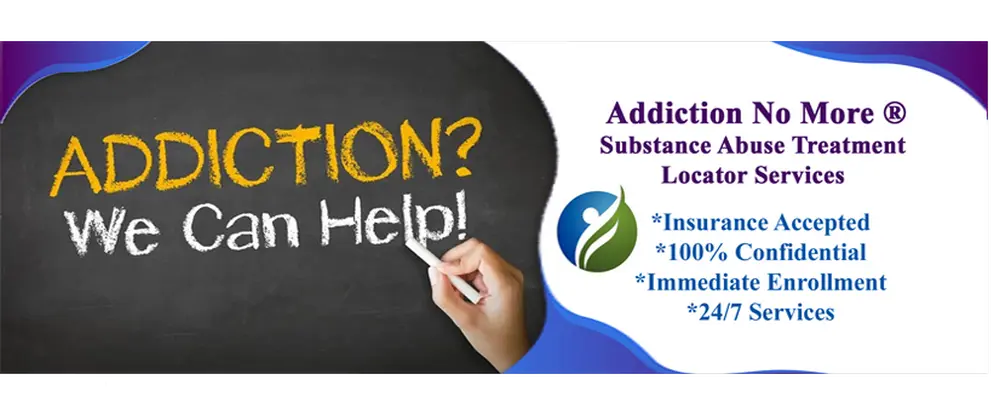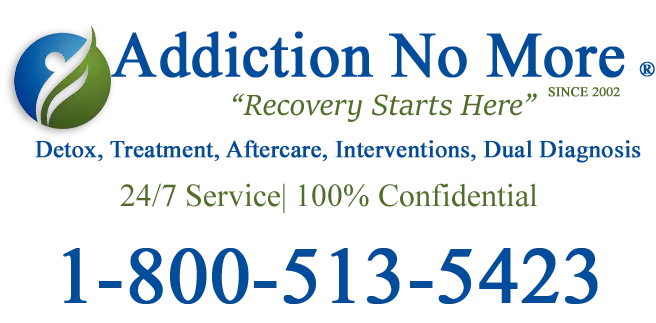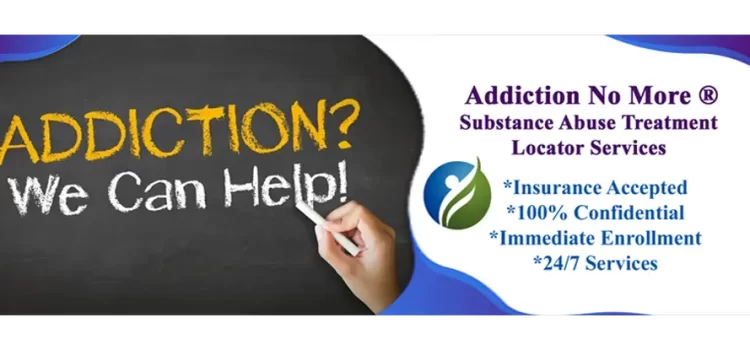Suboxone Treatment Centers
Suboxone treatment centers are available throughout the country for those struggling with opioid use disorders. Suboxone was developed to help those struggling with opioid dependence by alleviating withdrawal symptoms and allowing the individual to lead a productive life while getting opioid treatment. When used in conjunction with traditional therapy this type of treatment can be very effective in treating opioid use disorder.Please contact us by phone for immediate assistance. This is a necessary step in beginning the recovery process for yourself or for a loved one. Our addiction treatment specialists and staff have over 25 years of experience in helping people find effective and affordable treatment for all addictions. What you tell us is completely confidential. We are HIPAA compliant. We are here to answer your questions and to get you (or a loved one) into treatment today. For immediate intake, call us now.
1-800-513-5423
What you will learn:
Is suboxone safe?
How to find a Suboxone doctor or treatment program
Does insurance cover suboxone treatment?
Will suboxone cure my opioid dependence?
Myths surrounding suboxone treatment
How is suboxone administered?
What are the side effects of Suboxone?
Suboxone Detox
How we can help
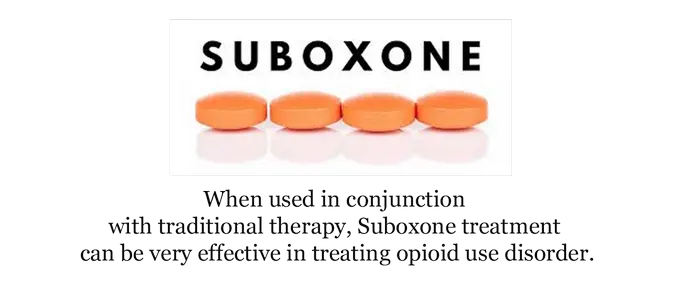
Is suboxone safe?
Suboxone is a safer alternative to being addicted to opioids because it incorporates the opioid blocker (Naloxone) to help limit overdoses, and buprenorphine, an opioid medication or narcotic to help with opioid withdrawal symptoms. Naloxone blocks the effects of opioids including the feeling of well-being and pain relief. Suboxone is only used to treat opioid addiction and is not used for pain management.The use of medications to treat opioid use disorders is also known as MOUD Medications for Opioid Use Disorder. MOUD has been shown to help lower the risks of opioid overdoses including fatal overdoses by over 50%. Opioid overdose rates in the United States have topped 100,000 per year over the last decade or so and MOUD has proven to help lower that statistic dramatically.

How to find a Suboxone doctor or treatment program
When looking for treatment, specifically Suboxone programs, we can help. Our intake counselors can help you find a program that will help you with all your recovery goals. Suboxone treatment works best coupled with traditional therapy programs like outpatient treatment programs and inpatient rehab centers. Give us a call and we will help you determine which type of program would best work for you and your current recovery goals. You can also go to the SAMHSA Facility locator and get an updated list of doctors in your area. We provided the link at the bottom of this page for your convenience.1-800-513-5423
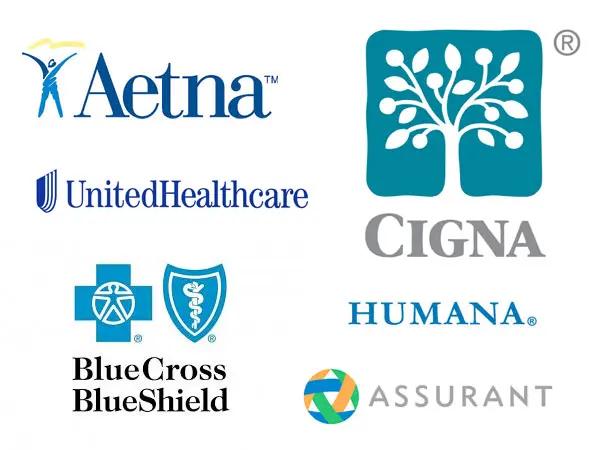
Does insurance cover suboxone treatment?
Yes, Suboxone treatment may be covered through your insurance plan. Now that medication-assisted treatment has become one of the most recommended treatments for opioid abuse, access to medications like suboxone has become a critical defense against the opioid epidemic. Depending on your insurance plan program fees may vary depending on provider, location, and co-payments.
Some of the insurance companies that will cover suboxone treatment include:
Aetna
Cigna
United Healthcare
Medicaid
Humana
Medicare
Blue Cross Blue Shield

Will suboxone cure my opioid dependence?
Suboxone is one of the drugs used in medication-assisted therapy (MAT) for opioid use disorder (OUD) and it has been proven to help people reverse the side effects of short-acting opioids like Heroin and prescription painkillers. With the opioid blocker Naloxone, Suboxone becomes a safer alternative for those looking to stop using their opioid use habit. When someone is considered “cured”, there is still a chance of relapse but with time those thoughts will become further and further apart. Just as in all conditions, like cancer, you can become cured and still have a chance of relapse. But safeguarding your recovery and helping it foster will lessen the chances of relapse.Myths surrounding suboxone treatment
1) Suboxone is frequently misusedSuboxone is less likely to be misused because it is a partial agonist of the main opiate receptor (the MU receptor). Although it can be misused the effects of the drug do not give the individual misusing the medication to get the same euphoric high, they would get from heroin or oxycodone. Making it less prone to misuse.
2) Suboxone does not cure addiction without incorporating a therapy program.
Treatment with suboxone only has been proven to be effective. But it is more effective when you combine MOUD with therapy, recovery coaching, and other therapy models. In a perfect world, Suboxone treatment should be used in conjunction with therapy but that is often not the case. This does not mean that suboxone alone can’t help someone struggling with opioid use disorders, but it means that adding therapy to MOUD treatment can significantly increase your chances of a successful program.
3) Suboxone should only be used for a short period of time.
With experts having different points of view on how long suboxone treatment should last, there is now a definitive answer to this question. There is no evidence to suggest that suboxone should only be taken for a short period as opposed to being able to take it for a long-term solution. When treating OUD with Suboxone, patient preference plays a huge part in the decision as to how long the treatment should last to achieve the individual’s recovery goals. There are risks that one faces when tapering off suboxone including relapse and possible overdose due to the tolerance to opioids being lower than they were when the individual was addicted to opioids.
4) You aren’t in recovery if you are taking Suboxone.
This statement is totally dependent on your own personal definition of recovery. The recovery community for the most part has defined recovery as complete abstinence from drugs or alcohol which has fueled the stigma that suboxone treatment is not recovery. When AA was started in the 30s its core principle states that you are only in recovery if you abstain from all intoxicating substances, including medications prescribed by your doctor. The AA model is not based on any type of science and is just one point of view. With recovery evolving to more modern conceptions that can include medications such as suboxone that help the brain regulate its chemistry and prevent overdoses. Medications used in recovery can often be the only life-saving treatment for some people who have become dependent on opioid medications.
Saying you are not in recovery if you take Suboxone for a chronic condition can discourage people from getting the help they need. This stigma can have detrimental effects on people trying to stop their use of heroin or opioids which can lead to overdose and even death in some cases. Discouraging people from getting help is not something that should be done. Thankfully people are starting to learn about the benefits of suboxone treatment and are setting aside their misconceptions about what recovery is.
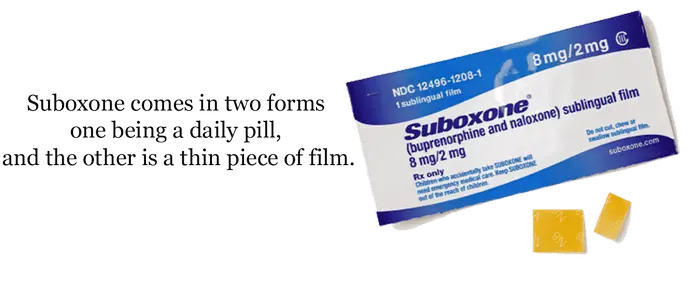
How is suboxone administered?
Suboxone comes in two forms one being a daily pill, and the other is a thin piece of film. These medications work the same way and are dissolved in the mouth making it easier to take when in addiction recovery. The tablet or film is placed under the tongue and will dissolve on its own. The film can also be placed in your cheek to let dissolve.What are the side effects of Suboxone?
There are a few common side effects of using suboxone including constipation, headaches, nausea, and diarrhea. Some people have also been shown to use it to relax which can lead to dependence. Suboxone can also have severe side effects which can include respiratory depression. This can lead to shallow breathing that will drop the oxygen levels in the bloodstream. Anyone who is experiencing respiratory depression should seek medical care immediately. Other severe side effects can include slowed or labored breathing, being lightheaded or dizzy, or being extremely sleepy and in some cases unresponsive. Respiratory depression is extremely rare. When people inject suboxone or use anxiety medications that contain benzodiazepines the chances of respiratory depression go up.
Suboxone Detox
Suboxone detox programs can take anywhere from 20 days up to about 36 days depending on the track you choose and your personal comfort level. There are two different types of programs. One is the equal reduction schedule which can take about 30-36 days, and the other is a 50% reduction program which takes 17-20 days to complete. Depending on your comfort level while detoxing can determine the schedule that you should follow. Tapering slowly will help some people alleviate any symptoms that may arise during the withdrawal process. As we have mentioned before, it is recommended that during and after detox you should seek counseling to help ensure that you are treating the whole problem and not just the physical symptoms.How we can help
Addiction is a very complex disease and there is no one-size-fits-all program that will work for everyone. It is better to match the program with the person, which will have a better result than choosing a program that you don’t agree with. We will be able to help you understand the choices you have for recovery and help you determine the type of rehab program that would work best for you. You can give us a call now and our intake specialists will answer all your questions regarding treatment.1-800-513-5423

Sources
Buprenorphine
Medications used in SUD treatment
SAMHSA facility locator
Erik Epp – Content Author
